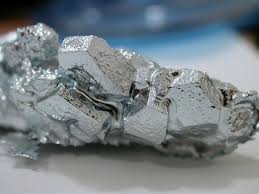In retaliation for U.S. restrictions on exports connected to semiconductors, China stated on Tuesday that it is prohibiting, as a general rule, the transfer of gallium, germanium, antimony, and other important high-tech minerals with possible military uses to the United States.
Following Washington’s expansion of its list of Chinese enterprises subject to export controls on computer chip manufacturing equipment, software, and high-bandwidth memory chips, the Chinese Commerce Ministry made the announcement. Advanced applications require such chips.
As President-elect Donald Trump has been threatening to drastically increase tariffs on imports from China and other nations, trade restrictions have been tightened, which could exacerbate long-simmering tensions over technology and trade.
A strong rebuttal was also delivered by China’s Foreign Ministry.
In a regular briefing on Tuesday, Lin Jian, a spokesman for the Chinese Foreign Ministry, stated,
“China has lodged stern protests with the U.S. for its update of the semiconductor export control measures, sanctions against Chinese companies, and malicious suppression of China’s technological progress.”
Lin stated, “I want to reiterate that China firmly opposes the U.S.’s abuse of export control measures, illegal unilateral sanctions, and long-arm jurisdiction against Chinese companies, as well as the overstretching of the concept of national security.
Chinese-sourced minerals are utilized in automobiles, computer chips, and other goods.
Laptops 1000In July 2023, China announced that it will need exporters to seek permits in order to deliver strategically essential commodities, like germanium and gallium, to the United States.
The Chinese Commerce Ministry announced in August that it will tighten controls on graphite exports and limit exports of antimony, which is used in a variety of products from batteries to weaponry.
These minerals are thought to be essential for maintaining national security.
According to a 2021 U.S. International Trade Commission study, China is a major manufacturer of antimony, which is used in the manufacture of nuclear weapons, batteries, flame retardants, and night-vision goggles.
Beijing on Tuesday also announced restrictions on exports of super-hard materials, including diamonds and other extremely dense, non-compressible manmade materials.
Cutting tools, disc brakes, and protective coatings are only a few of the numerous industrial applications for them.
China’s licensing requirements, which were revealed in August, also included equipment and technology for smelting and separation as well as other items associated with such super-hard materials.
China is the world’s largest supplier of gallium and germanium, which are manufactured in modest quantities but are essential for solar panels, military technologies, and computer chips for automobiles, cell phones, and other devices.
China claims that it is defending itself against US trade restrictions.
China’s Commerce Ministry objected and declared it would take action to defend China’s “rights and interests” after the U.S. side declared it was adding 140 businesses to a purported “entity list” that would be subject to stringent export controls.
Although some are Chinese-owned enterprises in Japan, South Korea, and Singapore, almost all of the businesses impacted by Washington’s most recent trade restrictions are based in China.
According to both countries, national security requires their separate export controls.
U.S. restrictions on access to cutting-edge processor chips and other technologies on security grounds have irritated China’s authorities, but the country has been cautious in its retaliation, perhaps to avoid upsetting China’s nascent chip, AI, and other technology developers.
A number of Chinese trade groups protested the U.S. decision to restrict access to cutting-edge chip manufacturing technologies in declarations.
The “malicious blockade and suppression of China,” “abuse of export control measures,” and “use of national security as a justification for export controls” were all condemned by the China Association of Automobile Manufacturers.
“Such behavior seriously violates the principles of fair competition and the laws of the market economy, undermines the international economic and trade order, disrupts the stability of the global industrial chain, and ultimately harms the interests of all countries,” the statement read.
In a similar statement, the China Semiconductor Industry Association said that these restrictions were raising costs for American businesses and upsetting supply networks.
Chips made in the United States are no longer dependable or safe. Related industries in China will need to exercise caution when buying American chips, the report stated.
According to the U.S. Geological Survey, China provides the United States with roughly half of its supply of gallium and germanium metals.
China produces over 600 metric tons (660 tons) of germanium annually and exported roughly 23 metric tons (25 tons) of gallium in 2022.
Although some projects are looking at ways to access the resources, the United States has not been mining the deposits of these minerals.
Prices for those vital minerals have been affected in different ways by the export limitations; antimony’s price has more than doubled this year to more than $25,000 per ton.
Graphite, gallium, and germanium prices have also largely increased.

















